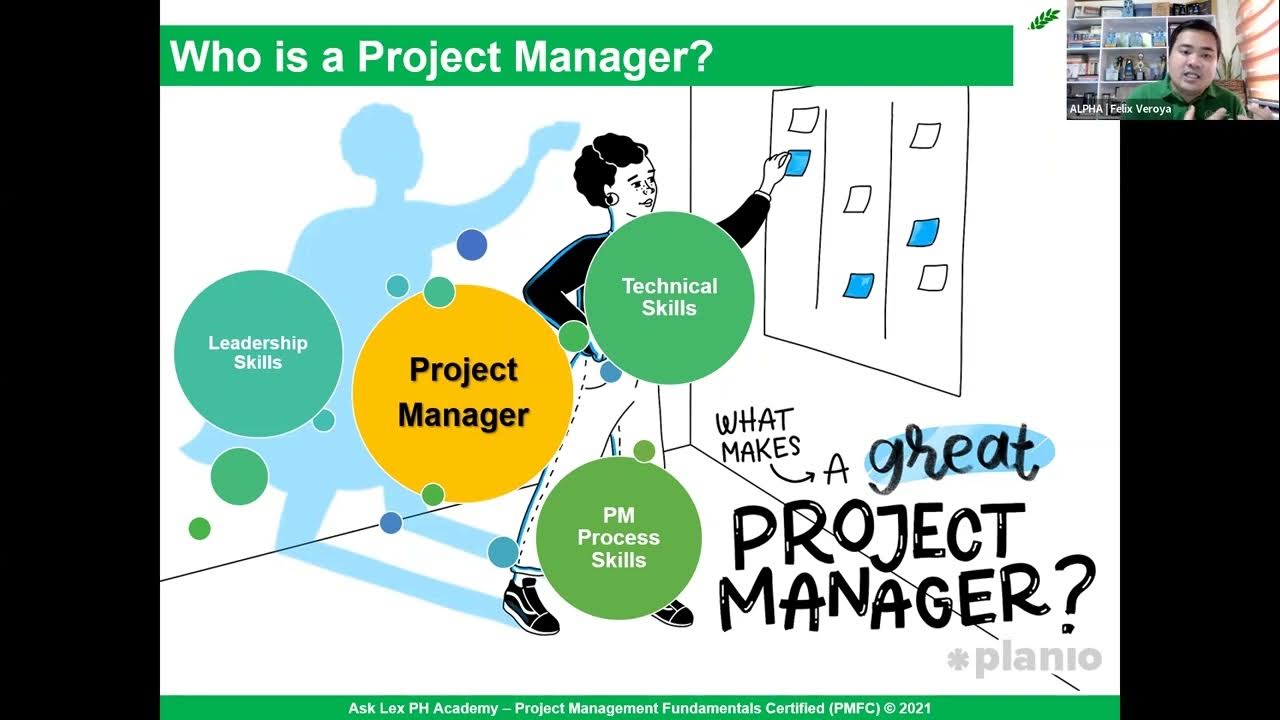COMMUNICATION SKILLS FOR MANAGERS | How To Be Clear, Concise and Effective
Summary
TLDRIn this video, Mak, a leadership and team-building coach, shares crucial communication skills for first-time managers. He breaks down the concept into four pillars: 1) Considering your audience, using the 'Know, Feel, Do' framework for clear, emotionally driven communication. 2) Mastering nonverbal communication to enhance engagement. 3) Ensuring clarity to prevent misunderstandings, especially in leadership roles. 4) Actively listening to truly understand and respond effectively. These strategies aim to help managers become more impactful communicators, ultimately boosting team performance and leadership success.
Takeaways
- 😀 Communication is a fundamental skill for leadership and management, with poor communication being a significant challenge for many managers.
- 😀 The 'Know, Feel, Do' framework is a powerful tool for effective communication, ensuring clarity in what your audience needs to know, how they should feel, and the action they should take.
- 😀 Understanding your audience's knowledge level is crucial to avoid overwhelming them with unnecessary information and to ensure that your message is appropriately tailored.
- 😀 Emotional engagement is key to inspiring action. Communicating with the right emotion helps motivate and empower your team to take desired steps.
- 😀 Clearly defined action steps are necessary for effective communication. If the next step isn't communicated, people may either not take action or take the wrong one.
- 😀 Non-verbal communication (body language, gestures, etc.) is as important as verbal communication. It sets the tone and reinforces your message.
- 😀 Small non-verbal cues like a smile, open posture, or appropriate gestures can significantly impact the effectiveness of your communication.
- 😀 Clarity is essential for effective communication. Without clarity, important messages may be misunderstood or ignored, resulting in wasted effort and confusion.
- 😀 The human brain burns energy to process information. If the communication is unclear, the brain shuts down to conserve energy, making it harder for your message to be absorbed.
- 😀 Active listening is a critical skill for great communication. By being present and truly understanding what others are saying, you can better adapt your responses and make your message clearer.
- 😀 Listening skills differentiate good communicators from great ones. People who actively listen can adjust their approach based on feedback, ensuring more productive and effective conversations.
Q & A
Why is communication considered a fundamental skill for managers?
-Communication is essential for managers because it directly impacts their ability to lead, build effective teams, and ensure tasks are completed successfully. Poor communication can hinder team performance, leading to confusion, misunderstanding, and reduced motivation.
What is the 'Know, Feel, Do' framework for communication?
-The 'Know, Feel, Do' framework is a method used to structure communication. First, consider what your audience already knows and what they need to know (Know). Then, determine the emotion you want to evoke to inspire action (Feel). Finally, clearly communicate the specific action you want them to take (Do).
How can a manager determine what their audience knows before speaking?
-A manager should assess the background and knowledge of their audience before speaking. This can be done by considering previous interactions, feedback, and the context of the conversation. If the audience already has significant knowledge, the manager should focus on the core message, avoiding unnecessary explanations.
Why is nonverbal communication important for managers?
-Nonverbal communication is crucial because it often conveys more than words alone. Body language, facial expressions, and gestures provide additional context and influence how messages are received. Managers need to be aware of their own nonverbal cues to ensure they are reinforcing the right message.
Can nonverbal communication impact a manager's relationship with their team?
-Yes, nonverbal communication can significantly impact a manager's relationship with their team. Negative nonverbal cues, like crossing arms or avoiding eye contact, can create misunderstandings, convey disinterest, or even make team members feel undervalued.
How can managers use gestures to enhance their communication?
-Managers can use gestures to emphasize key points, clarify complex ideas, or demonstrate enthusiasm. For example, using hand gestures to represent numbers or showing an open posture can make the message more engaging and help others understand the content more effectively.
Why is clarity so important in communication for managers?
-Clarity is important because unclear communication can lead to confusion and mistakes. When a manager is not clear, their message may not be understood as intended, which can result in the audience shutting down or misinterpreting the information. Clear communication ensures that everyone is on the same page.
What happens when communication is not clear?
-When communication is unclear, the audience may experience cognitive overload and disengage. The brain requires energy to process information, and if it cannot easily decipher the message, it may enter survival mode and shut down, leading to poor reception of the message.
What is the role of active listening in effective communication?
-Active listening involves fully concentrating on what is being said, understanding the message, and responding thoughtfully. For managers, it allows them to adapt their communication based on what their team members need, ensuring that the conversation is productive and that the right message is being conveyed.
What are some techniques managers can use to improve their active listening skills?
-Managers can improve active listening by clearing their minds of distractions, focusing on the speaker, and summarizing or repeating key phrases to confirm understanding. These actions help maintain engagement and show that the manager values the speaker's message.
Outlines

This section is available to paid users only. Please upgrade to access this part.
Upgrade NowMindmap

This section is available to paid users only. Please upgrade to access this part.
Upgrade NowKeywords

This section is available to paid users only. Please upgrade to access this part.
Upgrade NowHighlights

This section is available to paid users only. Please upgrade to access this part.
Upgrade NowTranscripts

This section is available to paid users only. Please upgrade to access this part.
Upgrade Now5.0 / 5 (0 votes)





